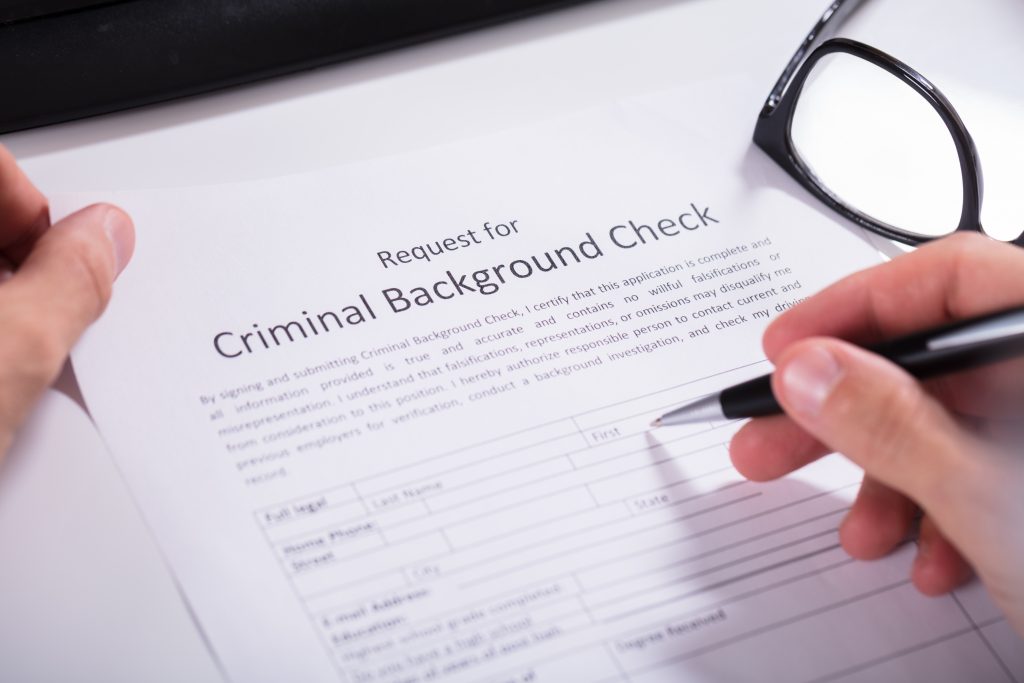In the United States, more than 650,000 prisoners are released from jail every year. Employers might be concerned about hiring an ex-convict. These applicants might be perceived as less competent and lacking skills. However, a background investigation can give information about why the applicant wenhttp://www.datacheckinc.com/ t to prison that may influence the decision as to whether or not to hire them.
Are Individuals with a Record Dangerous to Hire?
A study conducted by Kellogg and Northwestern University’s Pritzker School of Law analyzed data on about 250,000 applicants for sales and customer service jobs in the United States. Ex-offenders that were hired for a job were not any more likely to be fired from their jobs than non-offenders.
In fact, applicants with an arrest record were less likely to quit, which saved their company money in employee turnover. In fact, the turnover rate for employees with a criminal record is about 13% lower than those without one. However, the study also found that those with criminal records were more likely to be fired for misconduct so this should be considered when hiring for certain types of jobs.
Some companies automatically write-off an ex-offender, but they might be missing out on hiring a loyal employee who will work hard to prove themselves. In addition, a job is crucial for someone who has been released from jail so they can restart a life outside of prison. Without a job, there is a higher risk some criminals will end up back in prison.
Do Other Companies Hire Ex-Offenders?
If you are hesitant to hire an ex-offender, know that many companies are starting to have more confidence in hiring these types of employees. A criminal background check can help determine the severity of the offenses and how long ago they were committed, which can influence your decision.
Research from the Society for Human Resource Management and the Charles Koch Institute showed that a positive attitude of hiring those with a criminal background is emerging. Among those polled, 74% of managers and 84% of HR professionals claimed they are open to hiring an employee with a criminal record.
What Does a Criminal Background Check Tell Me?
Most employers run background checks during the hiring process, and an applicant’s criminal background can be checked as well. A customizable background check can include a potential candidate’s criminal background, such as how many offenses the person has committed, the type of offense, and what the outcome of an arrest was. The following can show up on a criminal background report:
- Arrests
- Warrants
- Sex Offenses
- Convictions of Felonies and Misdemeanors
- Incarceration Records
A criminal record will show that a conviction has occurred, but the candidate should be given the opportunity to explain the situation. Courts usually report arrests in the same way they report a conviction, so the background check needs to divulge if the person has been convicted, if the charges were dropped, of it the person is awaiting trial. Warrants do not always show up on background checks. This depends on how thorough the background check is. For example, criminal and civil warrants will usually show up on a background check, but a bench warrant will not.
What is Ban-the-Box Law?
Employers should be aware of the changing laws regarding hiring those with a criminal background. The United States has enacted the ‘Ban-the-Box’ Law that will go into effect in December 2021. This limits federal contractors from conducting criminal background checks before a conditional job offer has been made. In addition, an employer cannot disqualify an applicant from employment prior to application based on a criminal record. Employers must be compliant with this law when it goes into effect next year.
Fair Chance Practices
Employers that do not ask questions about conviction or criminal history before a conditional offer has been made are hiring with Fair Chance practices. After offering the job to a candidate, the employer can then conduct a compliant criminal background check. If an offense does show up on the criminal background check, the employer needs to decide whether or not to continue with the hiring process. The decision should be made on an individual basis and should take into consideration how much time has passed since the incident has occurred as well as the nature of the incident, and if it will affect the employee’s job. For example, a candidate with a criminal background that involves theft most likely should not be hired for a position that involves handling money or financial information because of the risk to the company.
Many employers use the type of crime to make a decision on whether or not to offer the candidate the job. Those that use the Fair Chance Act may find that they benefit from hiring people with a criminal background. These benefits include:
- Helping create jobs in a high-crime rate community
- Giving people who have made mistakes a second chance
- Enjoying higher retention among those with a criminal record who are more loyal to employers that give them a chance
As an employer, you need to make informed decisions about every person that you bring into the workplace to protect the safety of your business, current employees, and customers.
While a criminal record or active warrant should never be the sole reason for the disqualification of employment, a criminal background check will provide you with information to make a responsible decision when hiring this type of applicant. If your company is considering hiring or promoting an employee, a background check can help in your employment decisions. DataCheck has helped many businesses throughout the United States conduct background checks and make informed decisions.

